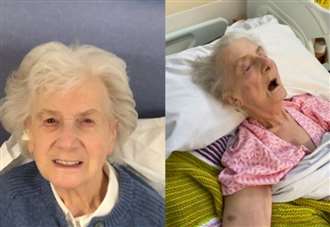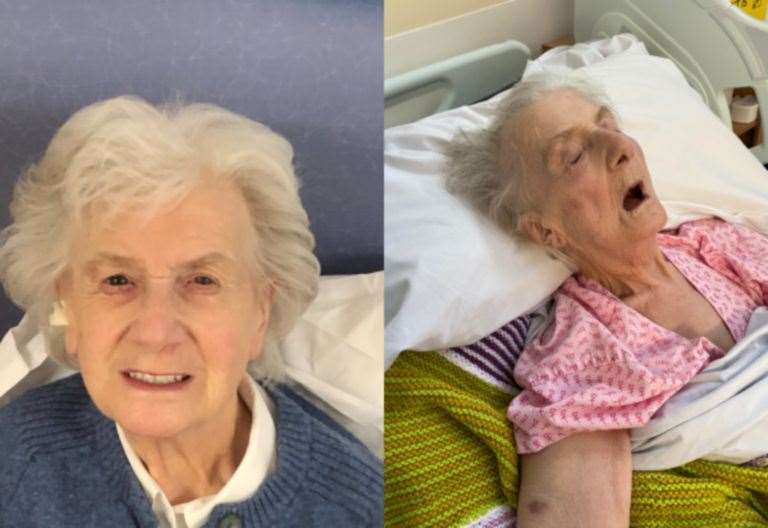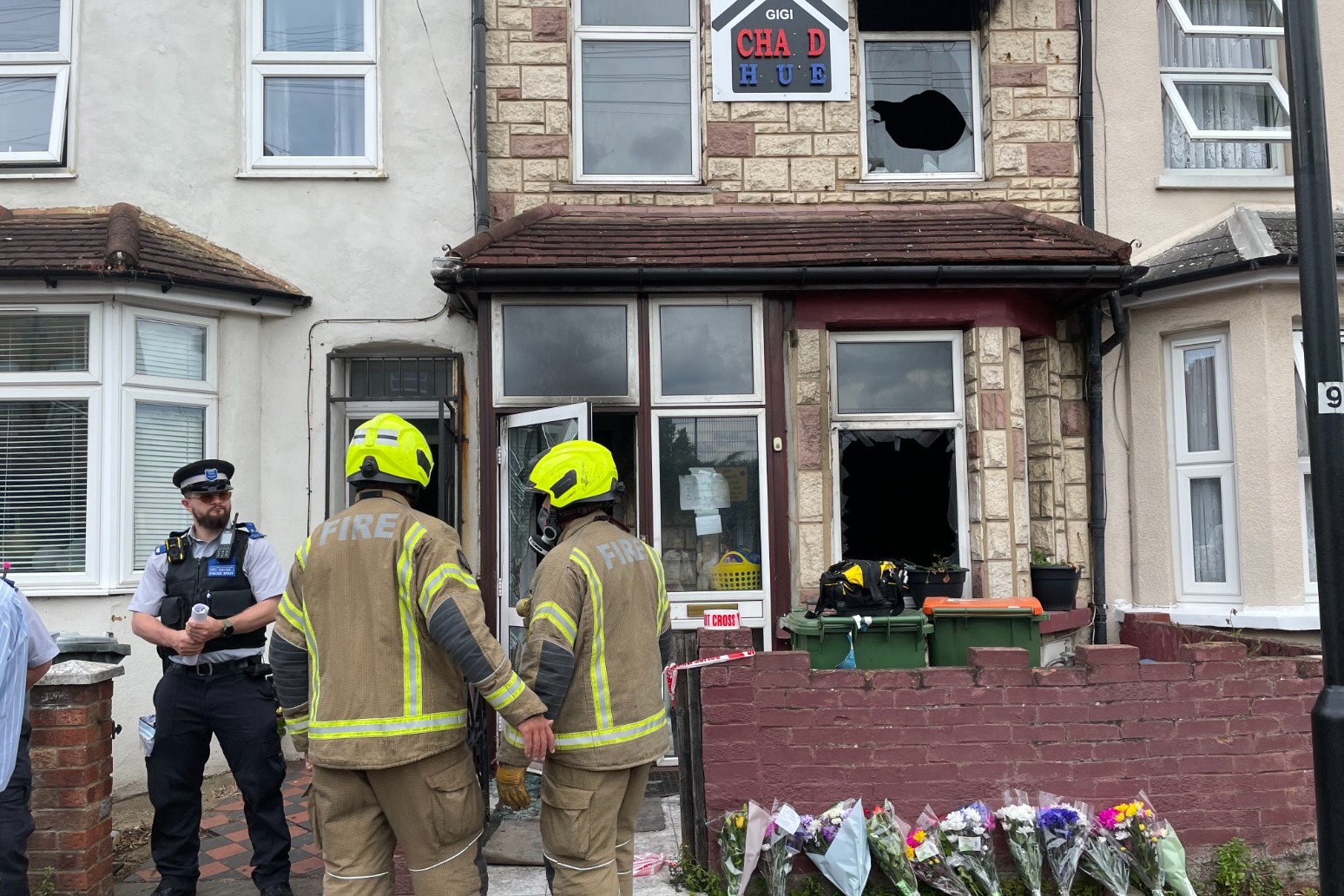

“She lived 91 years with having food intolerances so it wasn’t a problem, until she came to Lynn hospital. Then it was a problem.”
Those were the words of Ian Burnett after his 91-year-old mother died in Lynn’s Queen Elizabeth Hospital after consuming fewer than 200 calories on each of her first ten days there.
Marie Burnett suffered with food intolerances which meant she could not eat ingredients such as sauces, garlic and yoghurt. Her son Ian says that despite his family repeatedly telling the hospital about her intolerances, they were constantly ignored.
Mrs Burnett, of Wisbech, was admitted on January 15, 2022, after having issues with heart medication. She died in hospital on Feburary 10 last year, with a coroner’s report outlining the causes as bronchopneumonia and old age, frailty, and ischaemic heart disease.
However, area coroner Yvonne Blake said in her conclusion: “Her general frailty and health had been slowly deteriorating.
“She did not receive adequate nutritional intake for approximately seven to ten days following admission and weighed 9st 6lbs on admission and 6st 2lbs at her death. She suffered food intolerances and followed a strict diet at home.”
Ian said he spoke to doctors and nurses multiple times about his mother’s food intolerances while he was not allowed to visit due to Covid restrictions at the time.
He said: “I spoke to her doctor and told him about her food intolerances and he wrote it all down. He rang me the following day saying that he was a bit concerned about my mum, her heart was okay, but she didn’t appear to be eating.
“I told him she won’t eat stuff that will make her ill. They kept her in.”
Ian said that he later saw food diaries which showed a note reading “please refer to food chart to see disliked” which listed foods that Marie was intolerant to.
He described his mother, once a dance instructor, as active before her hospital admission.
“She was blind in one eye and she was deaf, but it didn’t stop her from doing things. She still would go to town, go and do her shopping, she was in a carpet bowls group. So it didn’t stop her from being active,” Ian said.
Ian and family members recalled seeing volunteers taking patients food orders on Denver Ward, where Marie was staying, and that they didn’t believe those volunteers always had the correct know-how.
He claims they also experienced problems at the hospital in 2019, and added: “We went to the hospital and said that mum can’t eat certain foods.
“When we did this in Peteborough, there were no problems. In Lynn it was a nightmare, they didn’t seem to respond.”
The family was given a copy of a police investigation report which identified seven “areas of concern” in relation to the care that Mrs Burnett received – including ‘best interest decisions’ and duty of care towards vulnerable patients.
It also highlighted a lack of understanding of basic nutritional needs of vulnerable patients, a lack of communication within departments, no management ownership of nutritional issues, a lack of knowledge from staff, and no evident pathway for ensuring that “crucial” information on intolerances is highlighted.
Helen Blanchard, the Interim Chief Nurse at the QEH, said: “On behalf of the trust, I reiterate our sincere condolences to Mrs Burnett’s family.
“Although we are not able to comment on specific aspects of this case, we can say that we are committed to delivering the best patient care possible and have reviewed Mrs Burnett’s care in detail to understand what lessons we can learn.
“The trust has implemented a trust-wide nutrition action plan which places an emphasis on supporting patients with all aspects of their nutrition, and our experienced catering team are able to accommodate patients with a wide variety of food allergies and intolerances, assisted by an electronic food ordering system which has been rolled out across the trust.”
Ian said he hopes that hospital care can be monitored more closely, and has suggested that members of the public observe the quality of patient care on random visits.













